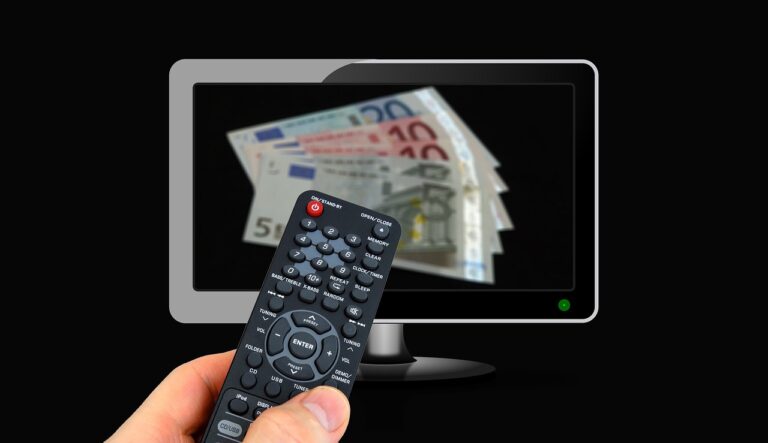It is important to know when to use cash and when to use credit in personal finance management. While cash is a real way of spending control, credit gives flexibility and potential benefits if used properly. Selecting the proper payment method could lead to the maximum financial gain, better budgeting, and even better credit scores. This article compares cash and credit, explains when it’s best to use each for the most financial benefit, and offers ways to ensure a balance between the two for financial well-being.
Pros and Cons of Cash
Cash has been around for a long time and is considered the most straightforward way of handling money. People enjoy certain benefits that can help them avoid spending more than they should and getting into debt.
The Pros of Using Cash
- Spending Control – This system limits people’s spending to the amount of cash they have with them, thus avoiding the situation of spending beyond their means.
- No Interest or Fees – Cash transactions do not incur interest or transaction charges, which are typically associated with credit cards.
- Immediate Transactions – There is no delay in the transaction since it is not subject to credit clearance or approval.
- Universal Acceptance: Cash is accepted in all forms, even in places that don’t accept electronic money.
- Better Budgeting: The use of physical money makes it easier to keep track of the money that is being spent and help in sticking to a certain budget.
Disadvantages of Using Cash
- No Credit Building – Using cash only doesn’t help in building a good credit history.
- Lack of Protection – If cash is lost or stolen, there is no way of getting it back.
- Inconvenience for Large Purchases – It is unsafe and uncomfortable to carry large amounts of cash.
- No Rewards or Perks – Cash payments do not offer such things as cashback, points, or travel points that are offered by credit cards.
Even though cash is useful for small purchases and avoiding debt, it is not always the most optimal financial choice.
Pros and Cons of Using Credit Cards: What You Need to Know
Credit cards offer many advantages and disadvantages as a mode of payment depending on how they are used.
Advantages of Using Credit Cards
- Improving Credit Score – Using credit cards the right way is a sure way to improving the credit score, which is important when securing a loan or mortgage.
- Rewards and Cashback – There are many credit cards that provide points, miles, or cashback on every purchase made and thus, a way of gaining from our spending.
- Purchase Protection – Credit cards also offer features like fraud protection, extended warranties, and chargeback, which are useful in case of a dispute.
- Financial Safety Net – Credit is a valuable asset to have in case of a financial emergency where cash is not readily available.
- Travel Benefits – Common credit card perks include travel insurance, free access to airport lounges, and no foreign transaction fees.
Disadvantages of Using Credit Cards
- High-Interest Rates – This means that if you buy something and then use your credit card to pay for it, the interest will be very high if you have a balance.
- Potential for Overspending – The availability of the credit card leads to the situation where one can spend more than they earn, which leads to financial problems in the future.
- Annual Fees – Some premium credit cards have annual fees which are quite high and may not be worth the extra features.
- Debt Accumulation – If credit cards are used incorrectly then it can lead to cycles of debt that are hard to break free from.
Even though there are many benefits of using credit cards, they should be used properly in order to avoid the negative consequences.
How to Use Cash or Credit to Get the Most Financial Return
To make the most of your financial situation it is important to know when to use cash and when to use credit.
When to Use Cash and When to Keep Your Cash
- Daily Expenses – Using cash for everyday items like food, transport and other small purchases is a helpful way of knowing where your money is going.
- Budgeting and Expense Management – For those with problems with spending, using cash can help to keep spending under control.
- Avoiding Credit Card Interest Rates – Those with credit card debt should avoid using credit cards as the case may be to avoid incurring more charges.
- Purchasing from Small Enterprises – Vendors are often more willing to accept cash to avoid the expenses that come with processing credit card transactions.
- Security Reasons – Cash is most suitable for use in situations where fraud is more likely to occur or where card cloning is a potential risk.
When to Use Credit When It Is Necessary
- Developing a Good Credit History – On the same note, positive credit behavior will reflect positively on your credit report, which will enable you to secure better credit terms.
- Online and High-Ticket Purchases – Credit cards are protected against fraud, which makes them more secure for internet shopping and expensive purchases.
- Rewards and Perks – Using a cashback or rewards credit card for everyday spending will help you get more value for your money.
- Making reservations and paying for lodging – Many hotels, car rental services, and airways demand a credit card for booking and collaterals.
- Expenses – When it comes to unexpected expenses, for example, medical expenses or sudden damage, a credit card can provide the necessary funds.
Knowing these differences, people will be in a position to make the right financial choices and learn how to use both forms of payment strategically.
Strategies for Balancing Cash and Credit Usage
This paper aims to explore how to balance cash and credit to improve financial stability while achieving financial benefits. Here are some strategies to achieve a balanced approach:

- Follow the 70/30 Rule – This means that cash should be used for daily spending and small purchases while credit should be used for bills, travel and other large transactions.
- Pay Off Balances in Full – To stay clear of interest charges, make it a point to pay off credit card balances before the due date.
- Cash for Control, Credit for Rewards – Use cash for controlled spending and take advantage of credit card rewards when you plan on making a purchase.
- Monitor Credit Utilization – To keep a good credit score, it is recommended to use no more than 30% of the available credit.
- Set Up Automatic Payments – This will help you avoid missing payment deadlines and incurring late fees.
Through the implementation of these habits, people will be able that to maintain financial health and take full advantage of cash and credit.
Both cash and credit are important in financial management. Although cash helps in controlling spending and avoiding debt, credit gives flexibility, rewards, and credit building. The success in financial management is achieved from the understanding of when to use each payment tool to enhance the returns while minimizing the risks.
Thus, the wise use of cash and credit can help people to make the right financial decisions and to build up a good credit history so that they can maintain financial stability in the future. This is because when it comes to making daily purchases, handling large expenses or planning for the future, it is important to know how to use both to my advantage.


